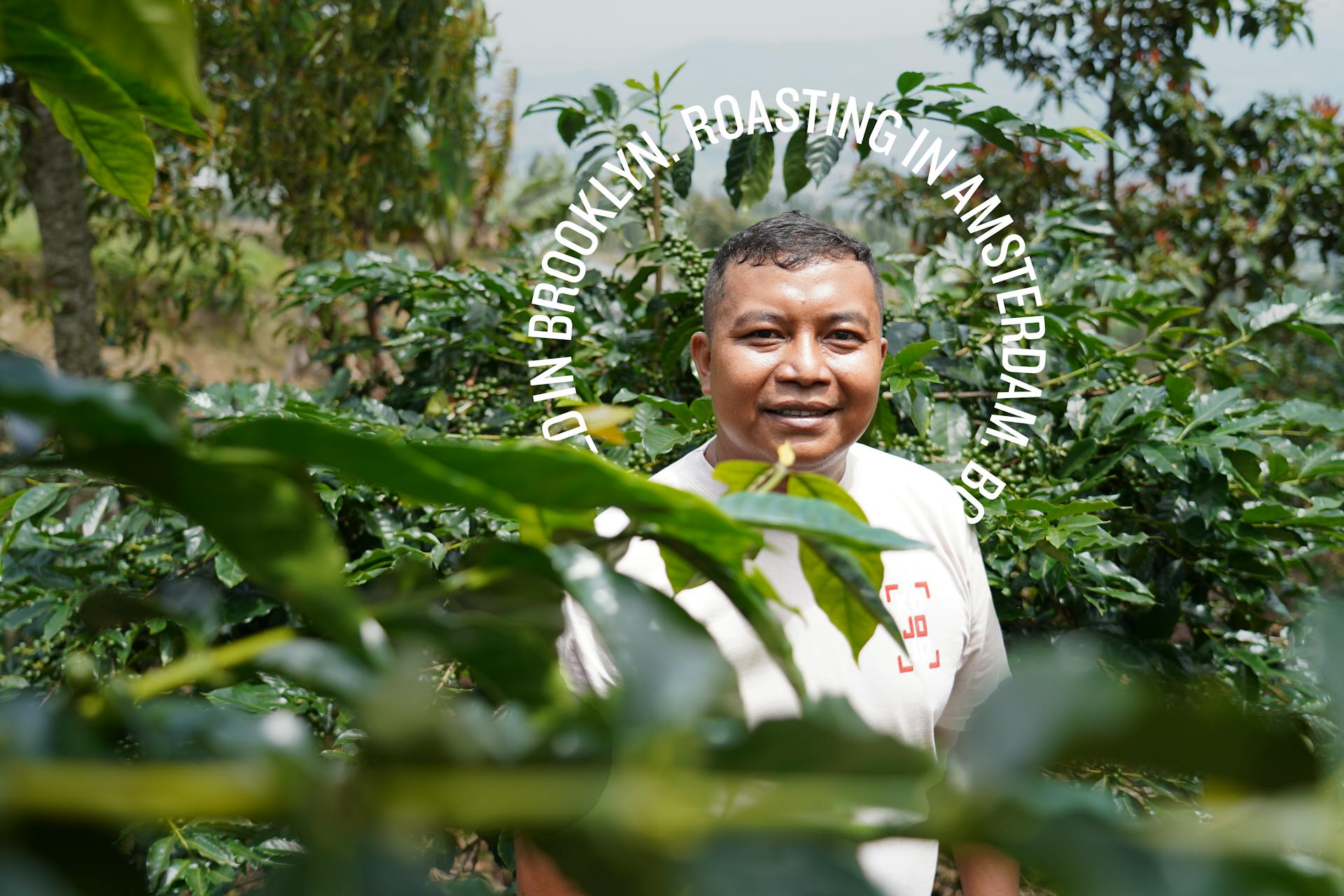Hydro Processing in Indonesia

Posted in Story
Written by LOT61
February 13, 2025
The Hydro Process Behind Temanggung's Finest Coffee
Posted in Story
by LOT61
Discover how the Kojoyo Cooperative and First Light Coffee use innovative hydro processing to unlock exceptional flavours. This meticulous method of fermentation, drying, and sorting transforms handpicked cherries into rich, vibrant coffee while supporting local communities and sustainable practices.
Nestled between Mount Sindoro and Mount Sumbing lies the home of two remarkable groups: the Kojoyo Cooperative and First Light Coffee. The Kojoyo Cooperative, led by Wahyu Setiyono, represents a community of predominantly Arabica coffee farmers spread across six districts in the Temanggung region. Of these, four districts, with 250 dedicated farmers, specialize in producing high-quality specialty Arabica. Wahyu, who initially pursued theology with dreams of becoming a priest, found his true calling in coffee. His journey began in 2019 when, as a coffee trader, he was captivated by the intricate world of coffee processing. A competition entry that earned him 11th place for his robusta opened the doors to endless possibilities in the art and science of coffee.

The Hydro Process
Wahyu's curiosity and determination led him to experiment with various processing methods, with the hydro process standing out as a game-changer. This method begins with the careful selection of only the ripest red cherries. The cherries are then fermented in tanks using the Intenso yeast strain for six days. After fermentation, the coffee undergoes open-air drying on raised beds for three days. Next, the beans are transferred to a closed dome for 14 days of controlled drying, followed by a seven-day resting period. After this rest, the beans go through an additional seven days of dome drying until the ideal moisture level is achieved. Finally, the dried cherries are allowed to rest for one month before being hulled and meticulously hand-sorted to ensure quality and consistency.
Another interesting processing technique is the Double Fermentation method. The first fermentation is an anaerobic dry fermentation in a tank for three days. The second fermentation is a submerged fermentation without yeast for four days. This is followed by open-air drying for three days, closed dome drying for 14 days, and a resting period of seven days. Afterward, the beans undergo an additional seven days of dome drying until the desired moisture level is reached. The dried cherries are then allowed to rest for one month, after which they are hulled and meticulously hand-sorted.

Beyond processing innovations, Kojoyo Cooperative aims to uplift its community. In 2020, the group partnered with Indonesia's Counter-Terrorism Body (BNPT) to provide economic opportunities to former radicalized individuals. Through coffee farming and tourism, rehabilitated ex-offenders find self-employment and a renewed sense of purpose. Today, five to six such individuals have turned into proud coffee farmers, contributing to the growth of this cooperative. The Indonesian government has allocated 100 hectares of land for this initiative, with 30 hectares already yielding specialty coffee.
Another challenge in the region is the decline of tobacco farming, historically a dominant crop in Temanggung. Tobacco not only depletes the soil but has also become less profitable due to declining demand. Kojoyo has been at the forefront of encouraging farmers to transition to sustainable, organic coffee cultivation. By nurturing the soil with natural fertilizers and planting windbreakers to combat the impact of cyclones, Wahyu and his team are safeguarding both the environment and livelihoods.
The cherries are then fermented in tanks using the Intenso yeast strain for six days. After fermentation, the coffee undergoes open-air drying on raised beds for three days.

The commitment to community development and environmental sustainability is shared by First Light Coffee, founded by Cahyo Pertama. Cahyo, whose name means "First Light," leads a youth-driven coffee movement in Candiroto village. Despite a family background in spice trading, Cahyo saw potential in specialty coffee. Collaborating with 20 peers, including first-time planters, he ventured into specialty coffee production. Initially, many of these young farmers were skeptical. However, the promise of stable incomes and the camaraderie of working as a collective soon turned doubt into dedication. Specialty coffee brought not only financial rewards but also a newfound pride within their community. Cahyo's partnership with Kojoyo Cooperative has proven to be a turning point, providing access to knowledge, resources, and fair collaboration.
Looking ahead, both Kojoyo Cooperative and First Light Coffee are committed to increasing productivity, refining processing methods (with a continued focus on the hydro process) and expanding access to organic fertilizers. Their shared vision extends to enhancing traceability, maintaining strict quality standards, and building relationships with new buyers. Together, these groups are not only crafting exceptional coffee but also cultivating a brighter future for their communities.

